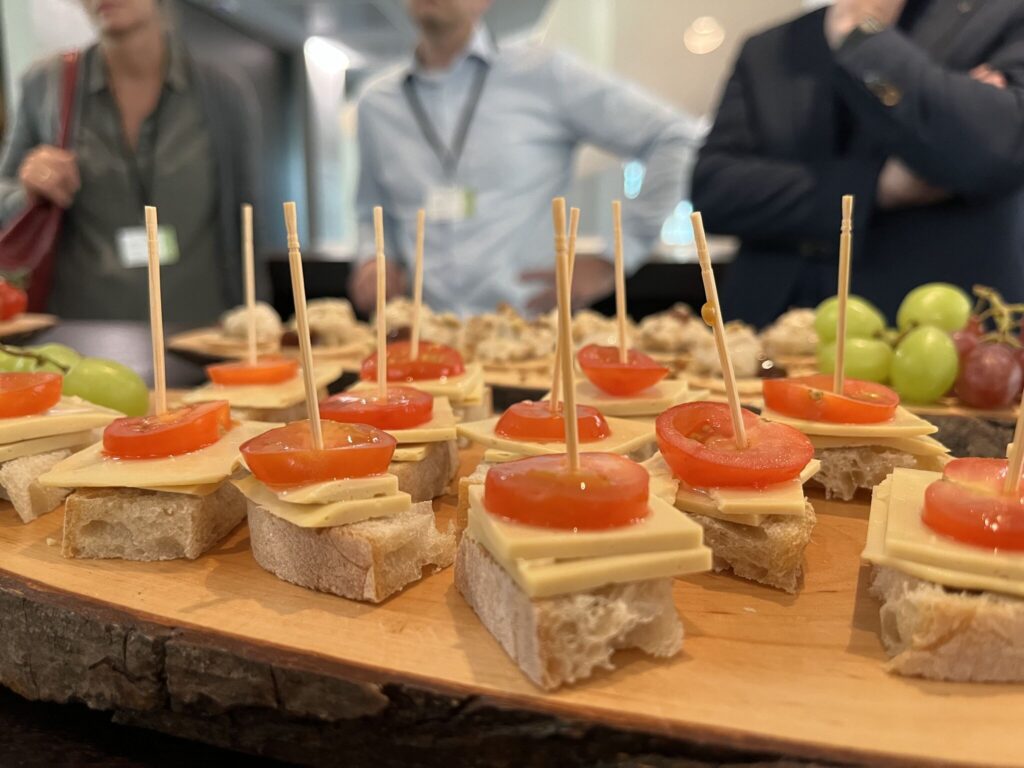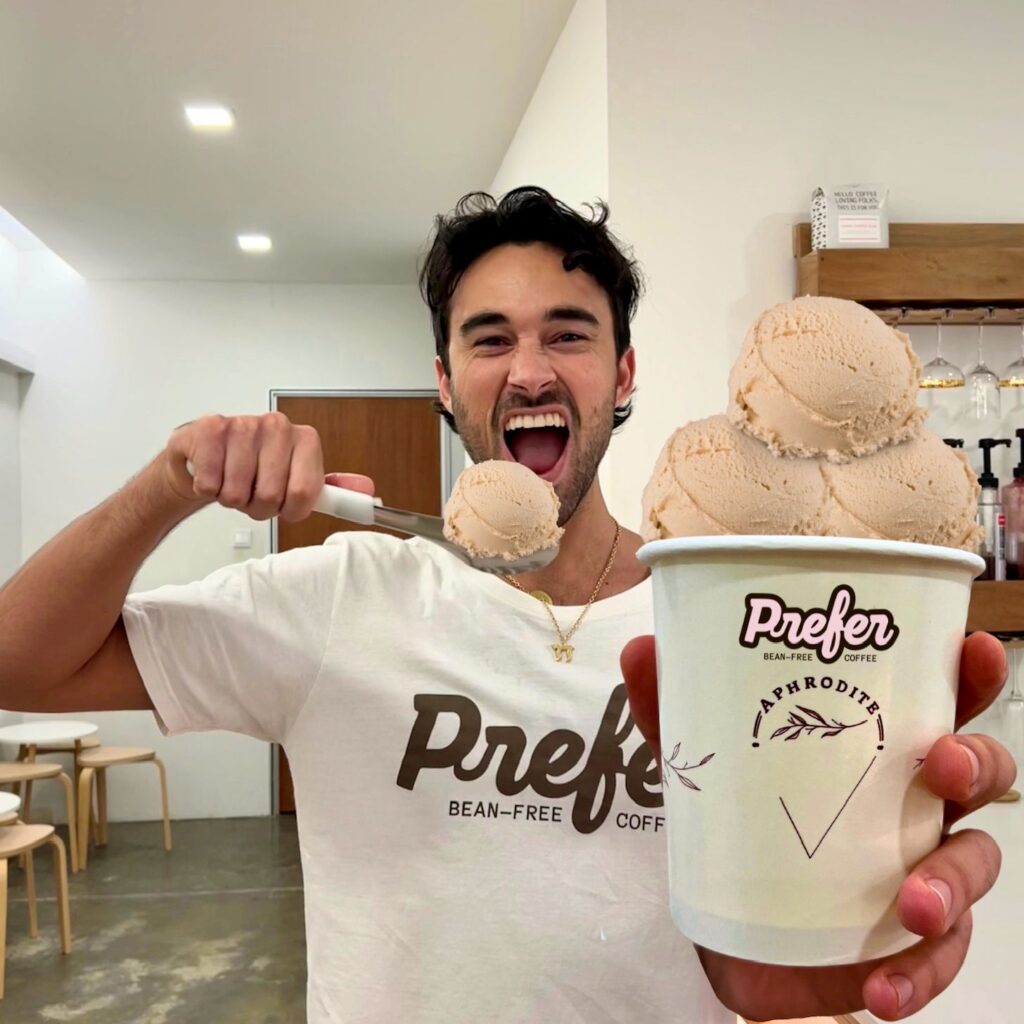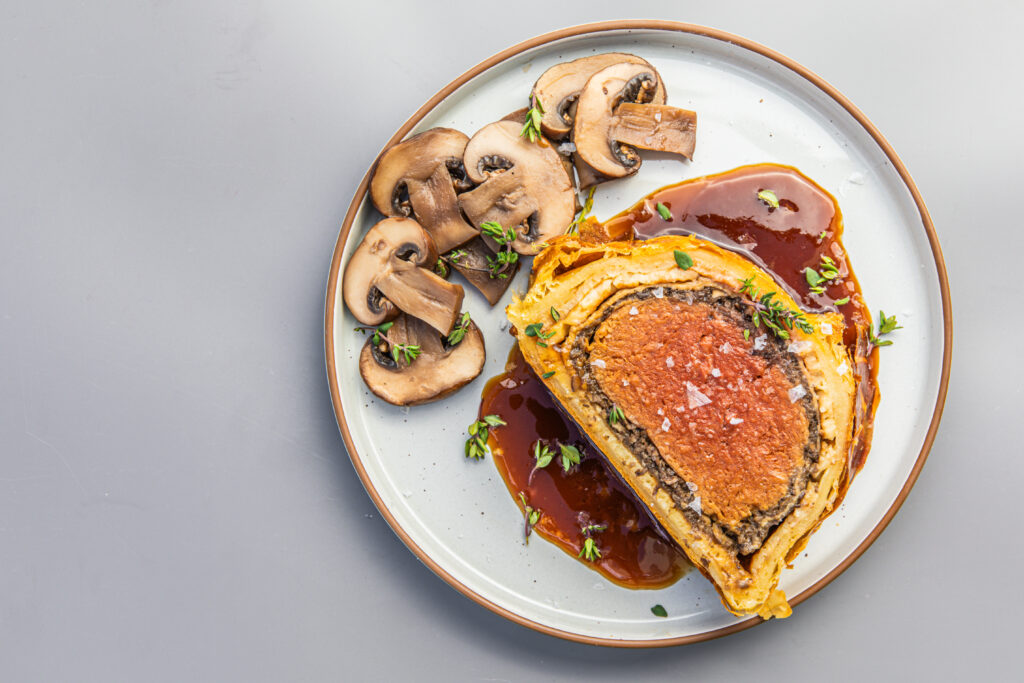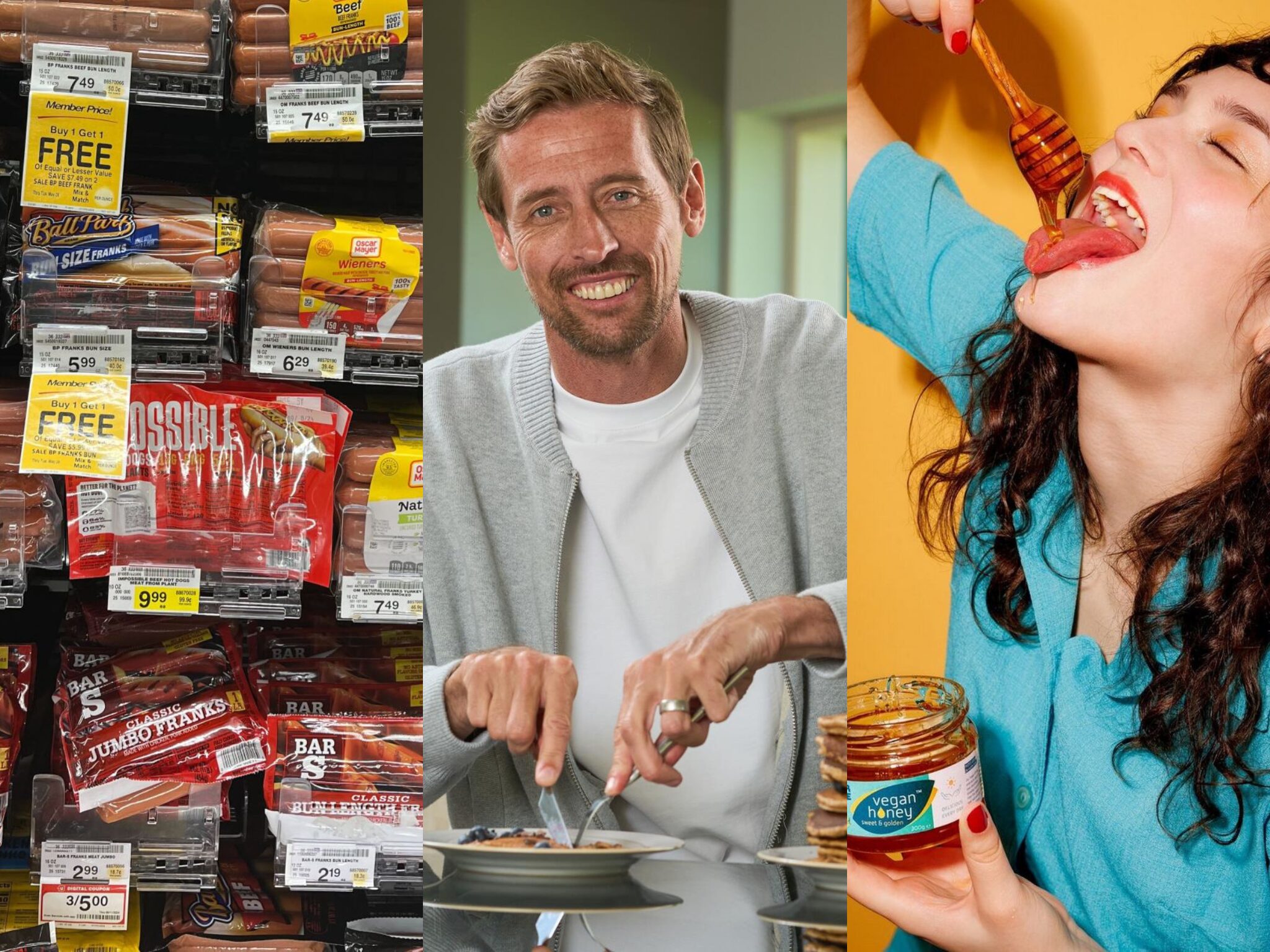Future Food Quick Bites: DoD v Cattlemen, Non-Dairy Footballers & Vegan in the Bronx
6 Mins Read
In our weekly column, we round up the latest news and developments in the alternative protein and sustainable food industry. This week, Future Food Quick Bites covers Alpro’s collaboration with Peter Crouch, a new alternative protein jobs platform, and a host of university-related news.
New products and launches
In the UK, Alpro has partnered with Peter Crouch to kickstart its new Alpro Plant Protein Morning Trials campaign. The former England footballer tests celeb fitness routines, including waking up at 2:30 AM, multiple gym sessions, and plunging into ice baths to promote the recently extended Plant Protein range.

Also in the UK, there’s a new musical about the meat industry. Mad Cow will be coming to Canterbury’s new fully vegan Garlinge Theater next month.
Swiss meat analogues maker Planted has rolled out its fermentation-derived steak in Switzerland at Coop and in Germany at Rewe stores.
Belgian startup Bolder Foods is continuing to showcase its biomass-fermented cheese prototypes, with investors and entrepreneurs getting a taste of its product at an event hosted by ingredients leader Givaudan.

San Francisco-based startup Impact Food has announced its sushi-grade plant-based salmon, with wholesale pre-orders running now. The product premiered at Oisixs Ra Daichi’s annual World Oceans Day event in sashimi and nigiri formats in Japan.
That’s not all for vegan salmon this week – German alt-seafood producer BettaF!sh has also entered the space with SAL-NOM, a hot smoked salmon analogue made from seaweed. It retails for €3.29 per 130g jar, and will be launched as a tinned SKU too in the summer.
As part of its roster of new mini-campaigns, Veganuary ran its Choose Fish-Free Week from June 3-8, shedding light on alternative seafood brands and recipes. A BBQ Month and Choose Dairy-Free Week will be next.

Israeli 3D-printed meat producer Redefine Meat has rolled out its New Meat range of lamb kofta mix, pulled beef, pulled pork, burgers, beef mince and bratwurst in German retail via e-tailer Velivery.
Hybrid meat maker Mush Foods has partnered with French specialty meat purveyor Dufour Gourmet to introduce a charcuterie range made from its 50Cut mycelium meat. Offerings include a bratwurst, breakfast sausage, Italian-style sausage, and chicken sausage.
Californian food tech company MeliBio‘s vegan honey, which retails in some parts of Europe under the Better Foodie brand name, is now available in Switzerland and Liechtenstein through a distribution deal with Swiss wholesaler Honeydew.

Fellow Californian startup Upside Foods served its cultivated chicken at Industry Only LA, as part of buffalo chicken bao buns and cold sesame noodles.
In the US, catering giant Sodexo and the University of Cincinnati have introduced 513 Culinary Group, an immersive campus dining venture to spotlight inclusivity and local ingredients. The partnership entails new menu options with more plant-based foods and special care given to allergens.
If you’re in New York, the Fordham Plaza is hosting the Bronx Vegan Bazaar every third Saturday from noon to 6 PM starting this weekend on June 15.

The Roots drummer Questlove partnered with Stella Artois to host the Questlove’s Cheesesteak Diner pop-up, which features Impossible Foods’ beef. It was the first event of the beer brand’s Let’s Do Dinner: Summer Series, which brings together food, lifestyle and entertainment platforms.
Speaking of which, Impossible Foods‘ new beef hot dog has made its way into Safeway stores in California and Jewel-Osco locations in Chicago – and it’s gone straight into the meat aisle.

And Singaporean beanless coffee startup Prefer has moved into the frozen world with a gelato launched in partnership with local dessert parlour Aphrodite Waffles and Gelato. The ice cream uses Prefer’s bean-free coffee concentrate.
Finance and company updates
Accelerator programme ProVeg Incubator has announced its latest cohort of alternative protein startups, featuring Atlantic Fish Co, Optimised Foods, Friends & Family Pet Food Company (all US), AIProtein (Egypt/US), and Fisheroo (Singapore). The initiative has also been extended from 12 weeks to 20.
Danish startup EvodiaBio has raised €7M to produce natural aromas for the food industry using precision fermentation. Its tech can improve the taste of non-alcoholic beer by producing yeast-derived ingredients that recreate the taste of hops.

Fellow fermentation company The Better Meat Co has slashed the production costs of its mycoprotein, which is now on par with commodity beef when manufactured at scale.
Germany’s Veganz Group – which makes plant-based dairy, meat and snack products – has confirmed the drawdown of a grant from the State of Brandenburg’s investment bank to construct a new facility in Ludwigsfelde.
Fellow German company Tälist has introduced AltProtein.Jobs, an AI-led ‘matchmaking’ platform to connect employers with prospective candidates in the future food sector. Its algorithm has made 2,000 matches with a 9+ score, 9,400 with 8+, and 25,000 with a 7+ rating.

The US Department of Defense has released a call for alternative protein funding proposals under BioMade, the public-private biomanufacturing consortium, with projects receiving between $500,000 to $2M. One of its key focus areas is on fermentation-derived and cultivated proteins for military rations. It has already spawned an outraged response from a cattle association.
Research and policy developments
Researchers at the United Arab Emirates University and the National University of Singapore have teamed up to explore novel plant protein sources that can be incorporated into meat analogues for better taste, texture and nutritional attributes.
In the US, Western Oregon University has signed the Humane Society of the United States‘ Forward Food Pledge, committing to transition its campus dining menus to 50% plant-based meals by 2027.

In more university news, the UK’s Nottingham Trent University has launched a master’s degree in smart agriculture, which will explore how AI, vertical farming and precision agriculture can enhance food security and reduce energy costs. Students will develop ‘recipes’ to produce food crops much more rapidly than currently possible outdoors.
Finally, plant-based food company Strong Roots conducted a 1,000-person survey in the US, the UK and Ireland to find that 52% of consumers are more likely to purchase products with carbon footprints on their packaging, and 82% want to be informed about businesses that contribute to climate change.
Check out last week’s Future Food Quick Bites.



